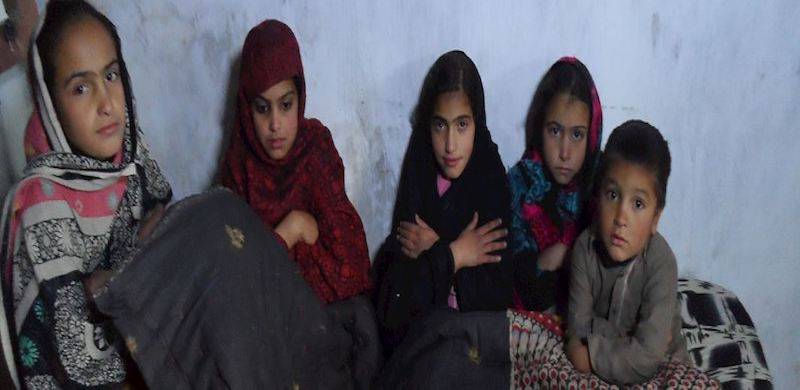
Whereas UNICEF and global partners define an orphan ‘as a child who has lost one or both parents’; laws of developed countries like the US refer to a child as an ‘orphan’ if either both his parents have abandoned him or if they have both passed away. The Islamic definition of an ‘orphan’ (yateem), on the contrary, differs completely. Any child (male or female) whose has no father or whose father has died and the child has not reached the age of puberty will be classified as an ‘orphan’ in Islamic Jurisprudence. The age of adulthood (for some scholars) starts at 16; for others at 18.
Hence, overall where there appears to be no uniformity in the definition of the term ‘orphan’, what does appear uniform, is the substance of the prescribed treatment towards them. Laws of various jurisdictions, teachings of different religions and norms of diversified cultures all stress on giving special attention to rights of orphans, warranting sympathetic and kind treatment towards them.
In Islam, Allah has ordered believers to be merciful towards all creatures. The ‘orphans’ are among those who need much love and protection. Islam shows a great deal of sympathy for orphans, for when we look at the Holy Quran; we will see that the word ‘orphan' is mentioned 23 times in 12 different forms in 12 different Surahs. At one instance, Quran says; "And be good to the orphans and the very poor, speak kindly to men, make prayer, and give in charity." (Al-Quran 2:83) .
In another place, Quran asks believers to spend their wealth in charity and to give it to the orphans: "They ask thee what they should spend (In charity). Say: Whatever ye spend that is good is for parents and kindred and orphans and those in want and for." (Al-Quran 2:215).
Wherever Islam dictates Muslims to show care and benevolence for orphans; the landmark 2014 policy of NADRA, goes further to alleviate and cement this status of orphans in Pakistan.
This policy is indeed a milestone regarding orphans rights in Pakistan, for prior to this policy, children without known parentage, were not able get their ‘fundamental rights’ as ‘citizens’ of Pakistan, on the simple ground that such parentless children lacked an ‘identity’ necessary to ‘register’ them under Section 9 of NADRA Ordinance 2000. It makes it mandatory for all orphanages in the country not only to register themselves with NADRA, but also to provide all relevant records of the children they house, so that they may be registered as well. This policy confirms the status of orphans as ‘citizens’ of Pakistan.
Another problem which this policy caters to is the appointment of legal guardian of orphans/parentless children. Previously, such children could only be legally adopted if (a) their parentage was known and (b)if the person claiming their guardianship (usually head of orphanages) got a court decree issued to that effect from a Guardian Court. This clearly meant that if either the parentage of the orphan could not be traced (for any reason whatsoever) or if a court decree seeking orphans’ guardianship could not be attained, acquiring legal guardianship of an orphan was not even a remote possibility. As mentioned above, following this policy however, provided the orphan is already ‘registered’, the procedure for claiming legal guardianship of orphans has been simplified to mere submission of an affidavit to that effect with NADRA. This , amongst other things, obviously paves way for easier adoption of orphans.
What is important to note here is, that even though Islam, in very unequivocal terms, obligates its’ followers to be kind to this vulnerable segment; the Constitution of the country (post this 2014 NADRA policy specifically) mandates equal treatment towards them, why is it that many orphans today are still without a ‘family’ and a ‘home’? It is pertinent to note that the current government via Prime Minister’s policies of 2019, has emphasised on fixing the running of orphanages in Pakistan in accordance with national and international standards as laid down by the Convention on the Rights of Child. The Child Protection and Welfare Bureau (CPWB) in Punjab particularly has done a remarkable job of conducting numerous rescue operations of abandoned children/orphans, taking them in CPWB’s custody and giving them a new home at the institute and/or connecting them with appropriate foster families in turn.
In addition to CPWB, Pakistan Sweet Home (Orphanage) provides care and housing to ‘orphans’ all over the country. However, greater foster care and definitely more extensive adoption programmes are certainly a better way of dealing with those without parental support.
For these reasons, if the Pakistani state is serious about ‘integrating’ rather than just ‘feeding and housing’ such neglected individuals, there needs to be a shift in the policy. For even Islam, albeit its’ reservations regarding rights of adopted children, time and again strongly encourages extended and long term care and nurturing of orphans.
